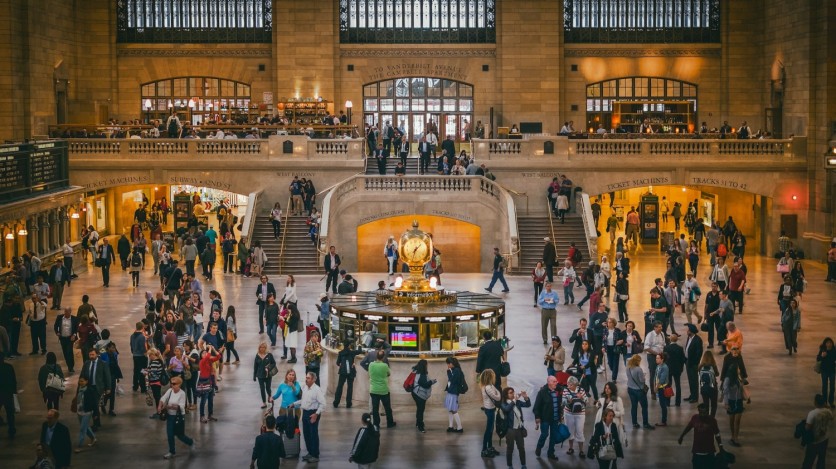
Sociology is defined as the study of life, change and social causes and consequences of human behaviour. Now it might seem like man and machine have nothing in common, but sociology and technology are actually deeply intertwined, and the relationship between the two has become even more pronounced in our digital age. Just take a look at the rise of social media and how every day these platforms are used to reflect human's desires for connection, validation, and self-expression. Understanding the interplay between sociology and technology offers valuable insights for those involved in all areas of the digital and tech industry. When tech creators have this insight, they can design products that truly resonate with us, understand why some people might be hesitant about new tech, and so much more. So let's delve deeper into social work theory and how it's been shaped by technology.
Innovation & Technology Shaped Global History
In this day and age, when we think of technology, we usually think of computers, robotics, artificial intelligence or smart devices. And while these mechanical wonders are fairly recent inventions, technological advancements have been shaping the social structure of human society since the dawn of time. Before the wheel, people travelled on foot or on horseback. Before Johannes Gutenberg invented the printing press in 1436, songs, stories and cave drawings were how people educated themselves and recorded history. Thanks to household electrical circuits, oil lamps were replaced by lightbulbs. The telephone and internet have made communicating via postal mail virtually obsolete.
Each one of these technological advancements resulted in some kind of social change; it allowed people to travel further, learn more, discover new things and meet more people. And as historians and sociologists studied these advancements and society trends and changes, the connection between the two became clear. As we continue to innovate, we must remain aware of the ripple effects each change brings to society.
Technological Advancements Change Our Social Structure
Social structure is like the invisible playbook for how society operates. It's the unwritten rules and patterns that shape how we interact, our roles, and what's expected of us. This includes things like family setups, who has power or money, our traditions, and even how we see right from wrong. Think about how we naturally form groups, like families or teams, or how most of us go to school and then work. These patterns give our lives a sense of order and predictability. But just like how each generation has its own vibe, these structures can change over time, adapting to new ideas and situations.
As mentioned above, technology has had a direct impact on how we communicate, learn, travel and maintain relationships with each other and shaped our social structure as a result. The rise of the internet and smartphones has revolutionised communication and diminished geographical barriers. Instead of only making friends in our neighbourhoods, we're connecting with people around the world through apps and games like Among Us, Tik Tok, Wordle and of course, Facebook. As tech keeps changing, it's reshaping our daily lives and helping overcome the limitations of our social structure.

Online And Opening Minds
Modern day humans have a formalised education system, but the ability to learn is one of the few things that connects most living things on Earth. Lions teach their cubs to hunt for food and early man taught the younger generation how to find shelter, water and eventually make fire. Sociologists are particularly interested in education because the learning environment reflects and reinforces societal values, norms, and inequalities. The classroom is where we pass on values, decide what's "important" knowledge, and sometimes, sadly, where some people get more chances than others based on background or looks. But advancements in EdTech are transforming these experiences. Learning is no longer confined to the classroom; tools like virtual reality, interactive apps, and global online platforms are erasing boundaries, allowing students from different parts of the world to collaborate and gain diverse perspectives.
The Wide, Wide World of Work
Technology hasn't just disrupted our idea of learning and education, but work as well. Work isn't just about earning a paycheck; it's a big part of who we are and how we fit into society. Jobs can often define our place in the world, affect our lifestyles, and sometimes even how much respect we get. Traditionally the majority of jobs required workers to be physically present in the office, and while remote working was allowed on occasion, it's now the norm in a post-pandemic world. Technology has enabled remote operations, allowing people to collaborate across continents via tools like video conferencing and cloud computing. People that may have missed out on the mental and financial benefits of their dream job because the office was overseas or limited employment opportunities in their area are now able to overcome this barrier.
And it's not just remote working technology that's changing how society works; automation and AI are reshaping job roles, demanding new skill sets. Some traditional roles are getting a tech makeover, leading to both job displacement and creation of new, previously unheard-of positions. For instance, while factory workers might face challenges from robotic replacements, there's a surge in demand for AI trainers or robotics maintenance technicians.
In the intricate dance of society and technology, one leads and the other follows, often switching roles. Technology, while changing the ways we communicate, learn, and work, reflects the broader canvas of our societal values. As we stand on the cusp of even more technological breakthroughs, being mindful of this symbiotic relationship is crucial. Only with this awareness can we ensure that technology enriches our collective human experience, promoting inclusivity and understanding.
ⓒ 2026 TECHTIMES.com All rights reserved. Do not reproduce without permission.




